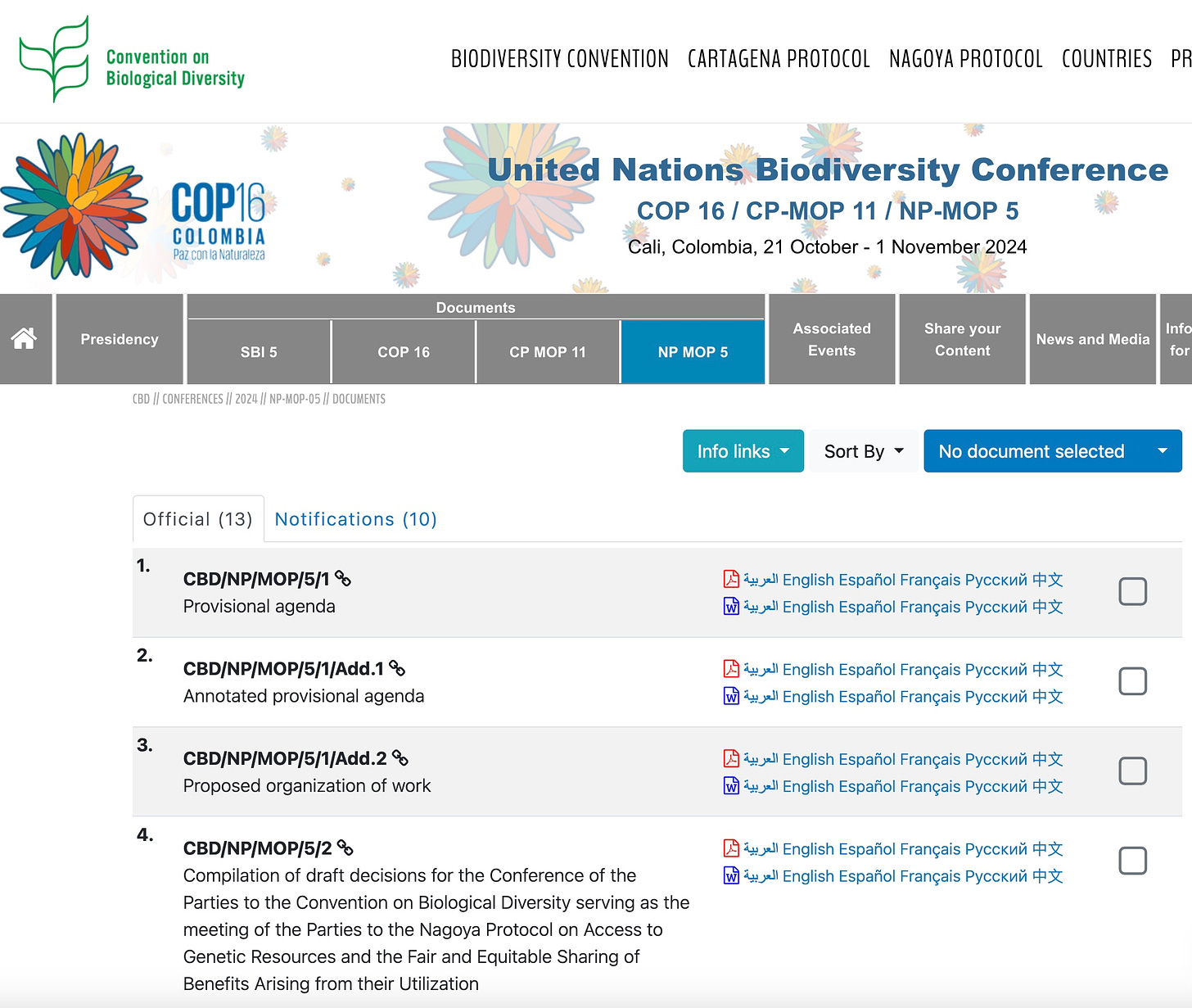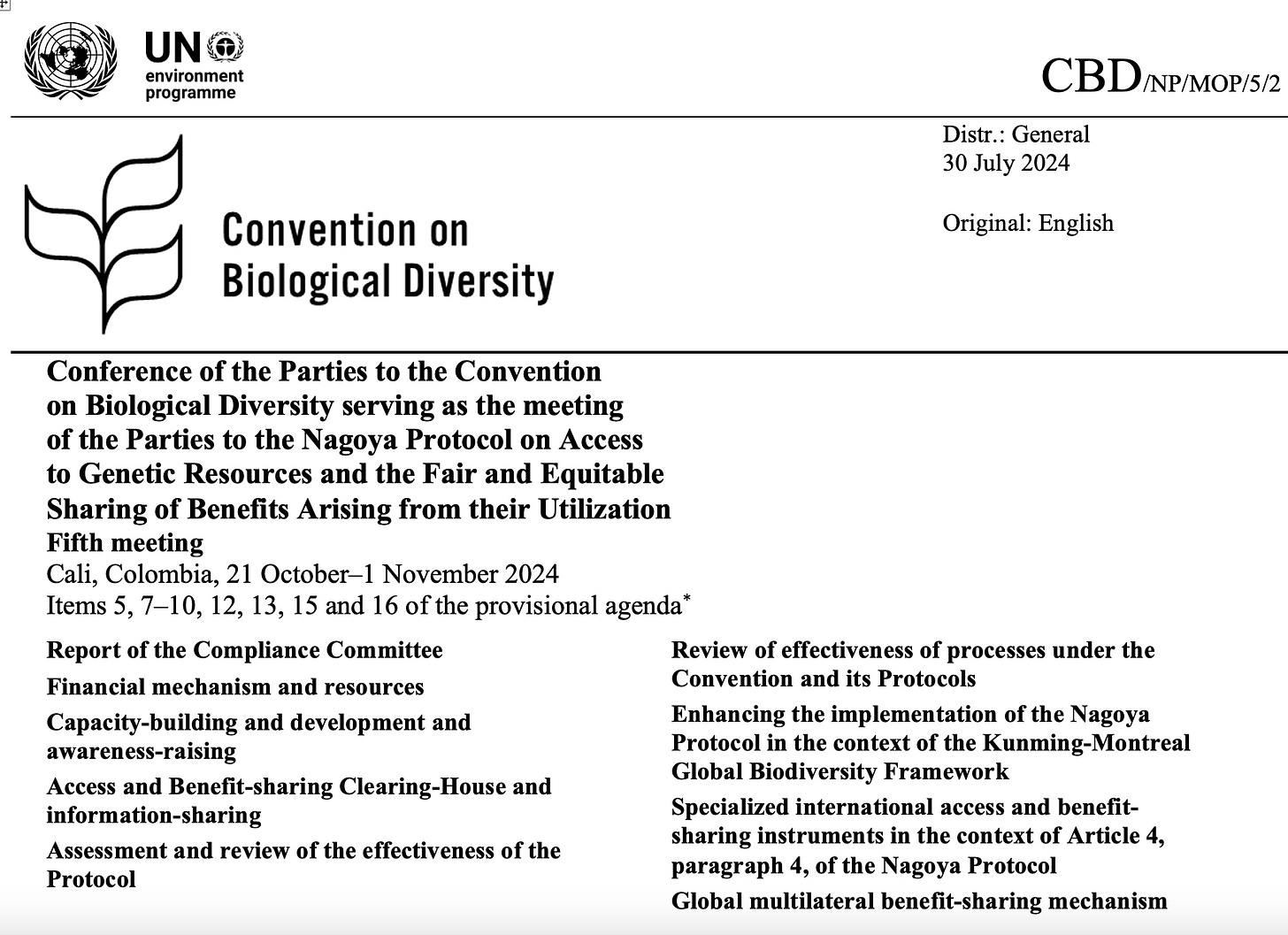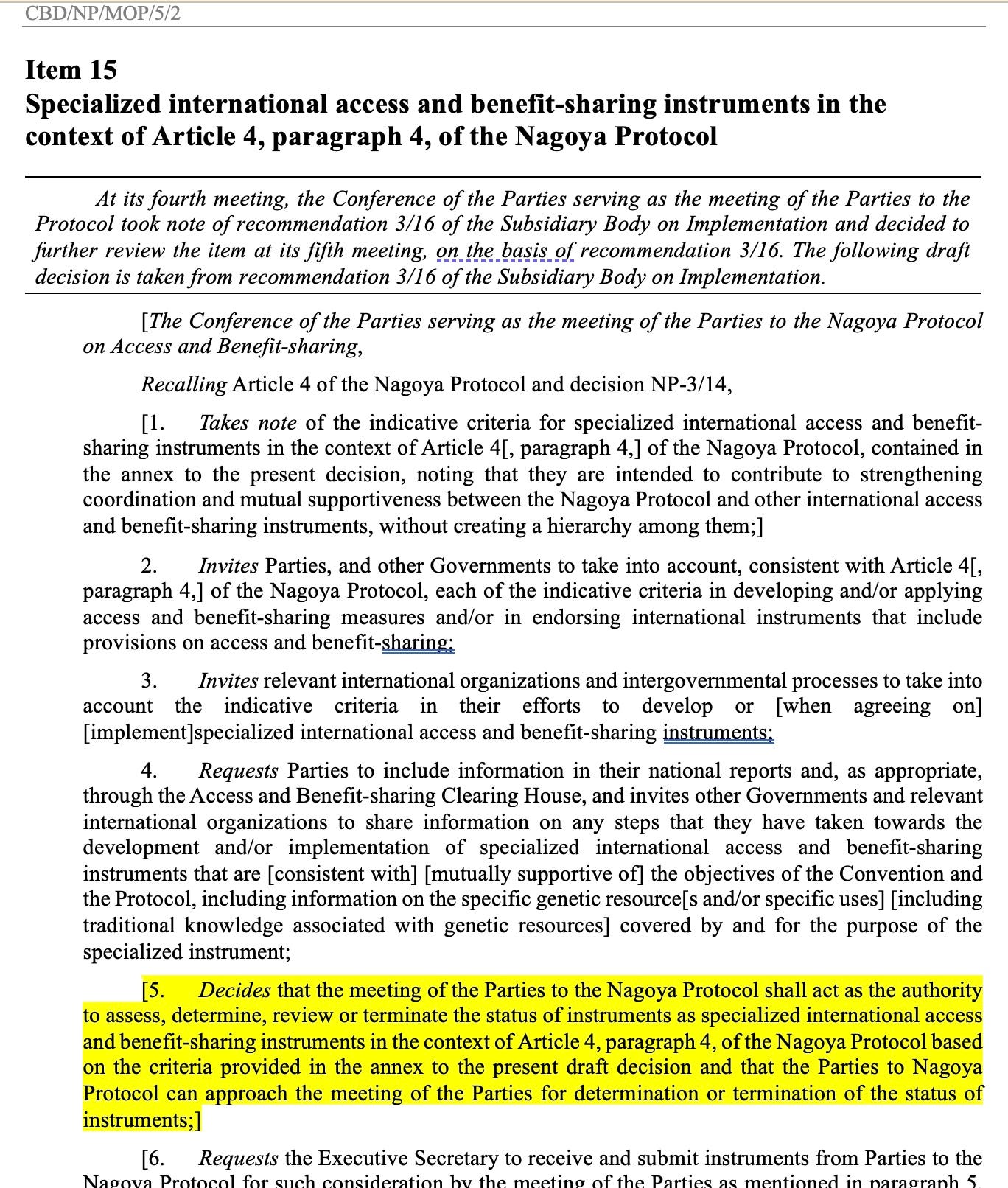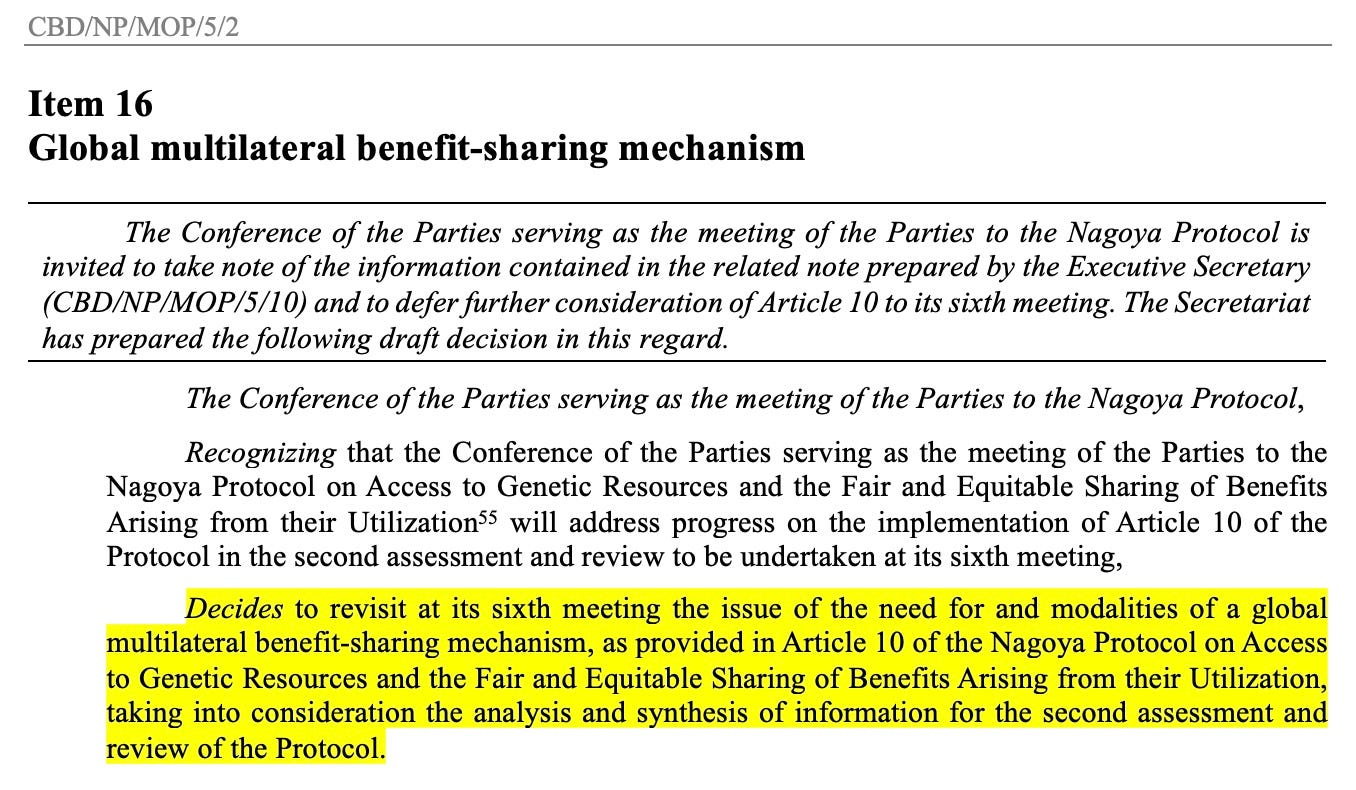Are the Pandemic Treaty negotiators being silently cut out of negotiations on pathogen access and benefits?
Does a parallel process through the UN seek to claim jurisdiction over the issue instead? Need legal minds with spare time.
I made a discovery recently that may be very relevant to explaining the waffling at the pandemic treaty negotiations. I was looking into other UN processes that are being used for the globalist agenda, and stumbled upon this.
I discovered a parallel process related to “Pathogen Access and Benefit-Sharing” (an area of great disagreement in the Pandemic Treaty) going on in preparation for the UN Conference of the Parties 16 of the Convention on Biological Diversity, scheduled to meet Oct 21-Nov 1, 2024 in Cali, Colombia.
The UN’s Biological Diversity COP 16 parties are negotiating changes to the 2014 Nagoya protocol, which first established an “access and benefit sharing system” for providing international access to Genetic Resources of individual countries, in exchange for benefits. This Nagoya protocol is the basis from which the WHO’s proposed biowarfare agent library (“pathogen access and benefit-sharing system”), which is a critical part of the Pandemic Treaty, was developed.
Yet this UN process has not been mentioned in the documents I have seen regarding the WHO pandemic treaty. Surely this is no error. The issue of pathogen access and benefit sharing is being negotiated for the WHO pandemic treaty and ALSO for the UN Biodiversity conference at the same time it seems, by different negotiators on different continents. Surely this is no accident?
The document I am concerned about is #4 on this page, and I have excerpted from it below:
See pages 37-40 of this document, pictured below. Document #4 from the page above:
I am concerned about whether some [highlighted] language in this document is intended to place decisions about pathogen access and benefit sharing into the hands of the Nagoya protocol negotiators, superceding WHO pandemic treaty negotiations and cutting out the troublesome negotiators there. What do you think?
I’d love to hear from the lawyers








And I am not sure but my instinct says this is VERY worrying:
'Why is the Nagoya Protocol important?'
The Nagoya Protocol will create greater legal certainty and transparency for both providers and users of genetic resources by:
Establishing more predictable conditions for access to genetic resources.
Helping to ensure benefit-sharing when genetic resources leave the country providing the genetic resources
By helping to ensure benefit-sharing, the Nagoya Protocol creates incentives to conserve and sustainably USE (my emphasis) genetic resources, and therefore enhances the contribution of biodiversity to development and human well-being.'
https://www.cbd.int/abs/about/default.shtml
Yes! That is what I have been thinking since a few months: whilst we all look at the WHO, other parties do what we do not want the Who to do.
Yes, the UN has been involved in this since 2010 with its 'Decade Of Biodiversity'.
They have been planning this for a long time; making viral material, us, nature, moldable objects suitable to their wishes and fiddle with all our genes and DNA.
https://en.wikipedia.org/wiki/United_Nations_Decade_on_Biodiversity
'Data Sharing
By following the Nagoya Protocol, it is more likely that genetic resources will be inventoried and findable, and that the research products are trackable, so that there is visibility of the value and benefits of having and understanding biodiversity. Communities around the world are building infrastructure to facilitate the Nagoya Protocol, which means new technology and information systems are emerging, such as more user-friendly cross-referenced databases. The Protocol does not mean open data, but it means managed and trackable data products associated with genetic resources. The spirit of the Nagoya Protocol is to broaden capacity to access and utilize data, which serves to help advance the science that can help humans maintain biodiversity.'
https://www.biodic.go.jp/biodiversity/misia/en_cop10.html